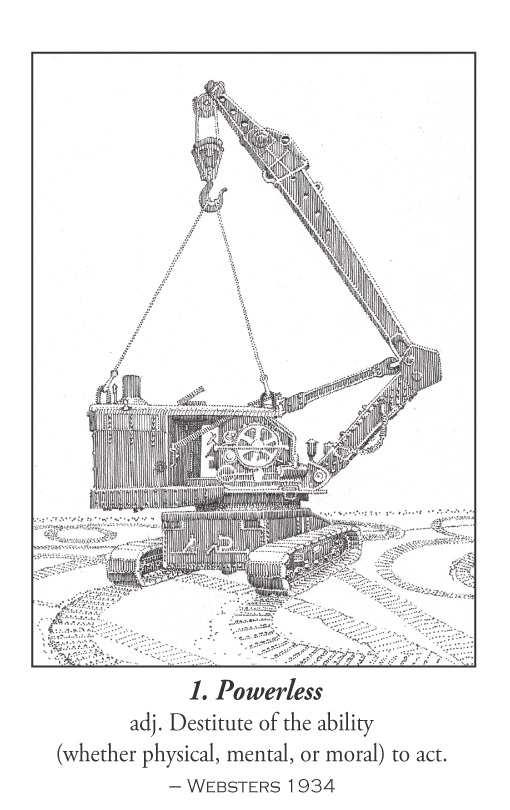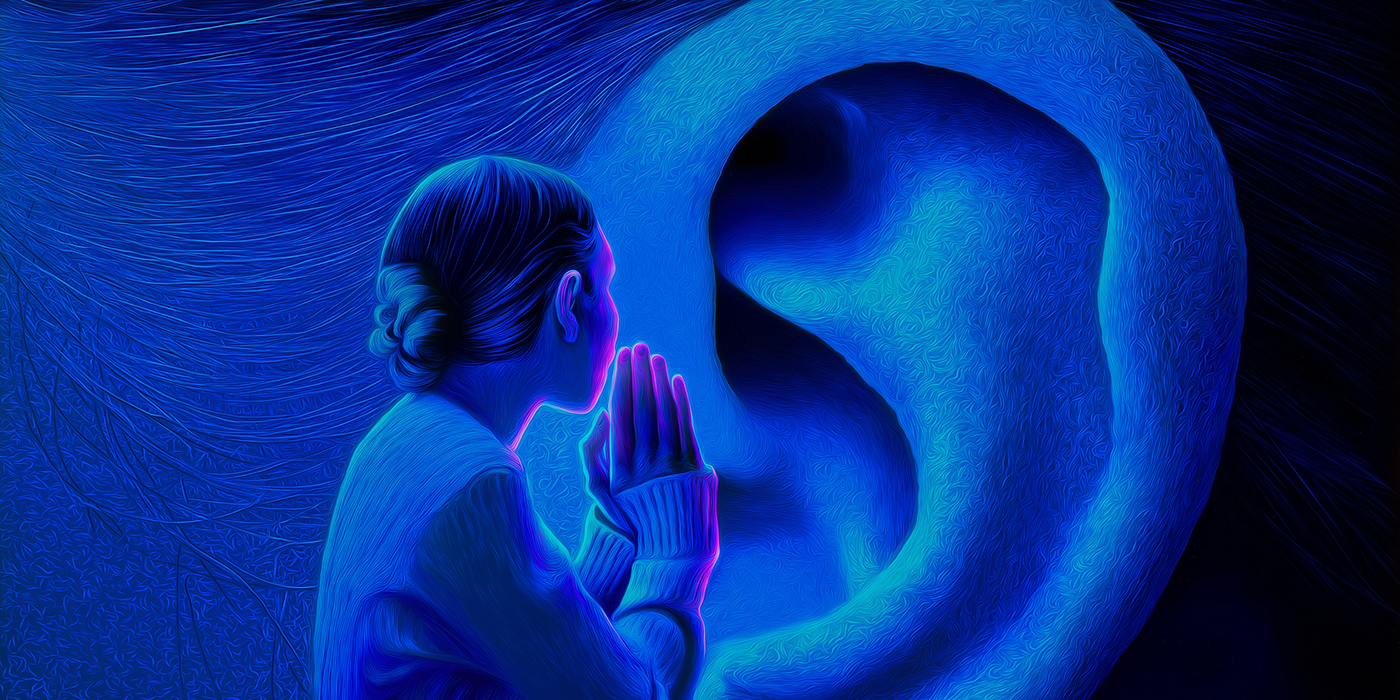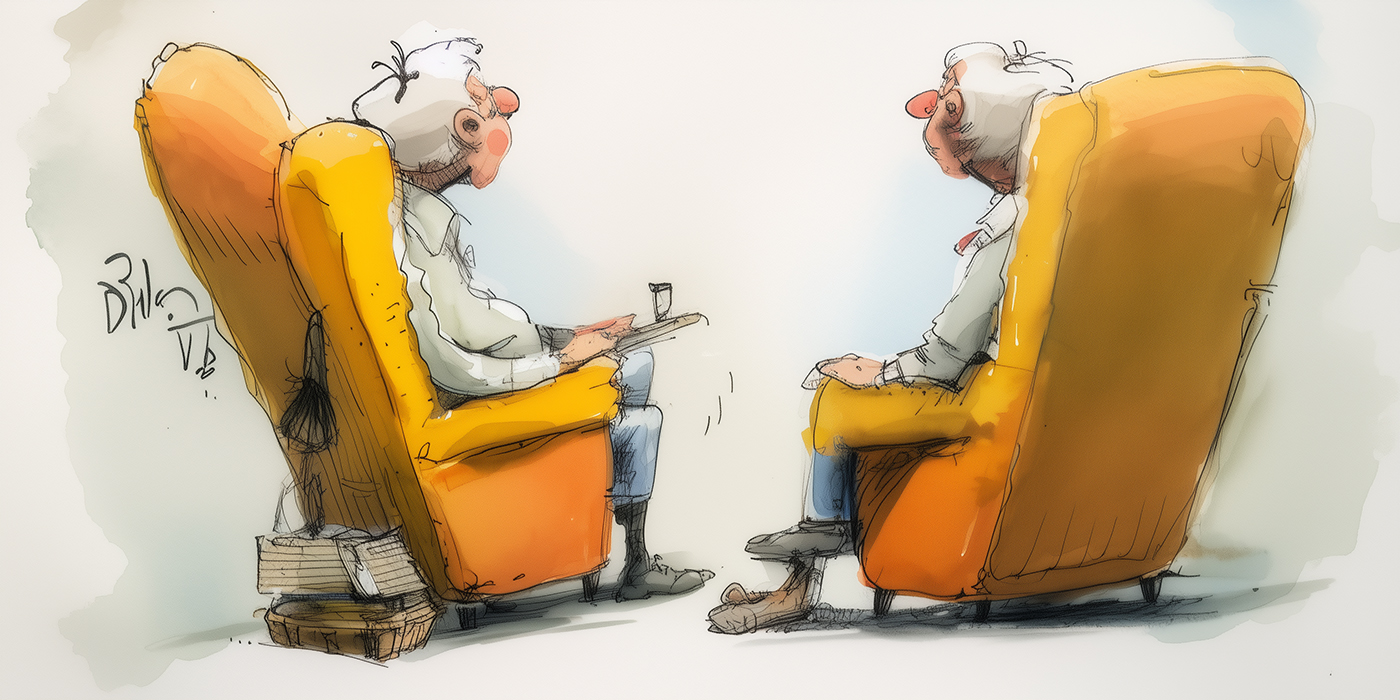When I started working the SA program, I really didn’t know anything about the Twelve Steps. I was relieved to find that Step One appeared to be so self-explanatory. It asked me to admit that I was powerless, and that was easy. I had already lost my marriage, my business, my house, and the care of my children. Even then, things kept getting worse, so of course I had no trouble admitting I was powerless.
Yet even as I started working Step One, I found myself seeking excuses for not fully working the Steps. I thought I should do what Step One said, but only halfway. For reasons that still baffle me today, I looked for loopholes in the written Steps.
For example, I questioned whether I was truly as “powerless” as Step One implies. After all, a truly powerless person couldn’t do anything at all. I knew I still had the power to drive a car, or write a check, or play a musical instrument. I can remember marveling at how logical my stinkin’ thinkin’ sounded! With this as my dubious justification, I barely worked the program while mentally holding myself back from it. As any sober person in SA could have predicted, such half measures availed me nothing.
With the help of a devoted sponsor, I got my thinking straightened out. Much later, I looked up the word “powerless” in my 1934 Webster’s dictionary (published at the time the Steps were written). I like to use this dictionary to look up definitions of key words found in the Steps, and then make drawings based on those words.
I found that “powerless” meant “destitute of power.” Wanting more, I turned to the definition for “power” and found it was the “ability (whether physical, mental, or moral) to act.” Putting this together, I came up with my own definition for “powerless”: “Powerless – adj. Destitute of the ability (whether physical, mental, or moral) to act.”
Before entering the program, my actions were much more lust-directed than self-directed. Despite my outspoken claims of self-control, I saw my own actions becoming deeply disturbing. It took time, but finally I admitted the obvious—that I no longer had the ability to stop. I could talk about sobriety, but the actions of sobriety were beyond my reach. My own enlightened self-interest finally told me this.
If I had been completely honest with myself from the beginning, I could have easily admitted I was powerless. I would never have used any other forms of power as a diversion. Step One doesn’t ask us to admit our powerlessness over driving a car, or writing checks, or playing music, etc. Step One simply says “we were powerless over lust.”
In my years before recovery, I had used every available resource to defeat lust. I used intense willpower. I spent years in individual counseling. I went regularly to church. I took every action “physical, mental, or moral” but could not defeat lust. None of it kept me sober. At last, I had to agree with Sexaholics Anonymous, Alcoholics Anonymous, and Webster’s Dictionary; I am truly powerless over Lust.
When I decided to illustrate one word from each of the Twelve Steps, the word “powerless” stumped me at first. I sketched a leaf floating in a stream, because it looked so powerless over the water. I showed a man stretching to grab something he could not reach. These images were okay, but they did not carry the message.
I asked myself, “What is something that is powerful enough to lift anything, but is powerless to lift itself?” Quickly, I sketched an enormous and powerful crane trying to lift itself. At its original small size, the crane looked too slapstick—nothing more than a childish cartoon, So I set it aside. Later, fed by prayer and meditation, I returned to it and made a larger drawing. Far from looking comical, the drawing nearly stopped my heart. Looking into that drawing was like looking into a mirror. It carried my message: “I can do much, but I cannot lift myself.”
The saying “A picture is worth a thousand words” probably applies here. The drawing explains itself. I chose this machine because it looked so strong, but many other machines wield more mechanical power than this one. Yet the message remains the same, even if the strength of the machine is multiplied a thousand times. The machine in the drawing lacks sufficient power, skill, or resources of any kind to accomplish its object. It, like me, needs a Power greater than itself.

John I.






